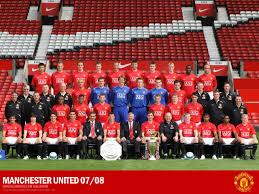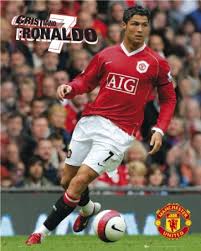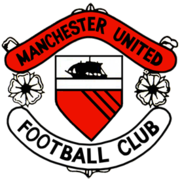 |  |  |  |  |
English Premier League
England
The Barclays English Premier League (EPL), considered as the best in the world.
Hull City vs Manchester United
Match scheduled:
Date: 27-12-2009
Time:16:00 until 18:00
Week 19 / Round 19 :: Barclays Premier League 2009/2010
Hull reached the Second Division in 1986 under player-manager Brian Horton. They remained there for the next five years before finally going down in 1991, by which time the club's manager was Terry Dolan. Hull finished 14th in the Third Division in the 1991–92 season,[13] meaning that they would be competing in the new Football League Division Two the following season. In their first season in the rebranded division, Hull narrowly avoided another relegation, but the board kept faith in Dolan and over the next two seasons they achieved several mid-table finishes. Financial difficulties hampered City's progress, as key players such as Dean Windass and Andy Payton had to be sold to fend off winding-up orders.[14] In the 1995–96 season Hull were relegated to Division Three.[4][15]
In 1997 the club was purchased by former tennis player David Lloyd, who sacked Dolan as manager and replaced him with Mark Hateley after Hull could only finish in 17th place in the table.[16][17] Hull's league form was steadily deteriorating to the point that relegation to the Football Conference was looking a real possibility. Lloyd sold the club in November 1998 to a South Yorkshire based consortium, but retained ownership of Boothferry Park.[16] Hateley departed in November 1998, with the club at the foot of the table. He was replaced by 34-year-old veteran player Warren Joyce, who steered the club to safety with games to spare. Hull City fans refer to this season as "The Great Escape".[18] Despite this feat, Joyce was replaced in April 2000 by the more experienced Brian Little.[4]
Despite briefly being locked out of Boothferry Park by bailiffs and facing the possibility of liquidation,[14] Hull qualified for the Division Three playoffs in the 2000–01 season, losing in the semi-finals. A boardroom takeover by former Leeds United commercial director Adam Pearson had eased the club's

The new chairman ploughed funds into the club, allowing Little to rebuild the team. Hull occupied the Division Three promotion and playoff places for much of the 2001–02 season, but Little departed two months before the end of the season and Hull slipped to 11th under his successor Jan Mølby.[4]
Hull began the 2002–03 season with a number of defeats, which saw relegation look more likely than promotion, and Mølby was sacked in October as Hull languished fifth from bottom in the league. Peter Taylor was named as Hull's new manager and in December 2002, just two months after his appointment, Hull relocated to the new 25,400-seater Kingston Communications Stadium after 56 years at Boothferry Park.[4]. At the end of the season Hull finished 13th.
Hull were Division Three runners-up in 2003–04 and League One runners-up in 2004–05. These back-to-back promotions took them into the Championship, the second tier of English football.[19][20] The 2005–06 season, the club's first back in the second tier, saw Hull finish in 18th place, 10 points clear of relegation and their highest league finish for 16 years.[4][21]
However, Taylor left the club on 13 June 2006 to take up the manager's job at Crystal Palace.[4] Phil Parkinson was confirmed as his replacement on 29 June 2006,[22] but was sacked on 4 December 2006 with Hull in the relegation zone,[23] despite having spent over £2 million on players. Phil Brown took over as caretaker manager,[23] and took over permanently in January 2007, having taken Hull out of the relegation zone.[24] Brown brought veteran striker Dean Windass back to his hometown club on loan from Bradford City,[25] and his eight goals helped secure Hull's Championship status as they finished in 21st place.[26] At the end of the season, former manager Brian Horton rejoined the club as Phil Brown's assistant.[27]
Adam Pearson sold the club to a consortium led by Paul Duffen in June 2007, stating that he "had taken the club as far as I could", and would have to relinquish control in order to attract "really significant finance into the club".[28] He resigned from the board on 31 July 2007, thus severing all ties with the club.[29]
Under Paul Duffen and manager Phil Brown, Hull City improved greatly on their relegation battle of 2006–07 and qualified for the play-offs after finishing the season in third place. They beat Watford 6–1 on aggregate in the semi-finals and played Bristol City in the final on 24 May 2008, which Hull won 1–0 at Wembley Stadium, with Hull native Dean Windass scoring the winning goal.[30][31] Their ascent from the bottom division of the English football league to the top in just five seasons is the third-fastest ever.[32]
Despite being one of the favourites for relegation, Hull began life in the Premier League by beating Fulham 2–1 on the opening day in their first ever top flight fixture. With only one defeat in their opening nine games, Hull City found themselves (temporarily) joint top of the table, third on goal difference, following a 3–0 victory over West Bromwich Albion[33] - ten years previously they had been bottom of tier four of the league. Hull City's form never replicated the highs of the early autumn, winning only two more games over the remainder of the season.[34] Despite the drop in form and slow slide down the table, Hull City went into the final game of the season in 17th place and above the drop zone. They ultimately lost the game against Manchester United 0–1, however Newcastle United and Middlesbrough also lost their games against Aston Villa and West Ham United respectively, thus securing a second Premier League season for Hull City.
Between 1904 and 1905, Hull City played their home games at The Boulevard.[48] This ground was used by Hull on a contract which allowed them to use it when not used for Rugby League, at a cost of £100 per annum.[49] Hull built their own ground, Anlaby Road, which was opened in 1906.[50] With the threat of the rerouting of the railway line through the Anlaby Road ground, the club was convinced it needed to secure its future by owning its own ground.[8] They negotiated the deal for land between Boothferry Road and North Road in 1929, which was financed by a £3,000 loan from the FA.[51] Due to the club's financial difficulties, no work took place for three years, and development then stopped until 1939. In that year a proposal to build a new multi-purpose sports stadium on the site temporarily halted the club's plans to relocate, but when this plan failed the club resolved to continue with the stalled development of the site, in anticipation of moving to the new stadium in 1940. The outbreak of war, however, meant that the redevelopment again came to a halt, as the site was taken over by the Home Guard.[8]
During the Second World War, Anlaby Road was damaged by enemy bombing, the repair cost of which was in the region of £1,000. The Cricket Club served notice to quit at the same time, and so in 1943 the tenancy was officially ended.[50] Hull were forced to return to the Boulevard Ground from 1944 until 1945 because of the poor condition of the planned stadium at Boothferry Road.[49] The new stadium was finally opened under the revised name of Boothferry Park on 31 August 1946.[8]

United struggled to replace Busby, and the team struggled under Wilf McGuinness in the 1969–70 season, finishing a disappointing eighth, and following a poor start to the 1970–71 season, McGuinness was demoted back to the position of reserve team coach. Busby was coaxed back to the club, albeit only for six months. Results got better with Busby's guidance, but he finally left the club for the last time in the summer of 1971. In the meantime, United had lost a number of high-profile players such as Nobby Stiles and Pat Crerand.
Despite approaching Celtic's European Cup-winning manager, Jock Stein, for the manager's job – Stein had agreed a verbal contract to join United, but pulled out at the last minute – Frank O'Farrell was appointed as Busby's successor. However, like McGuinness, O'Farrell only lasted less than 18 months, the only difference between the two being that O'Farrell reacted to the team's poor form by bringing in some fresh talent, most specifically Martin Buchan from Aberdeen for £125,000. Tommy Docherty became manager at the end of 1972. Docherty, or "the Doc", saved United from relegation that season but they were relegated in 1974, by which time the golden trio of Best, Law and Charlton had left the club. Denis Law had moved to Manchester City in the summer of 1973, and ended up scoring the goal that many people[who?] say relegated United, and politely refused to celebrate the goal with his team mates. Players like Lou Macari, Stewart Houston and Brian Greenhoff were brought in to replace Best, Law and Charlton, but none could live up to the stature of the three that came before.
The team won promotion at the first attempt, with a young Steve Coppell making his début towards the end of that season, having joined from Tranmere Rovers, and reached the FA Cup final in 1976, but were beaten by Southampton. They reached the final again in 1977, beating Liverpool 2–1. In spite of this success and his popularity with the supporters, Docherty was sacked soon after the final when he was found to have had an affair with the physiotherapist's wife.
Dave Sexton replaced Docherty as manager in the summer of 1977, and made the team play in a more defensive formation. This style was unpopular with supporters, who were used to the attacking football preferred by Docherty and Busby. Major signings under Sexton included Joe Jordan, Gordon McQueen, Gary Bailey and Ray Wilkins, but Sexton's defensive United failed to break out of mid-table obscurity, only once finishing in the top two, and only reached the FA Cup final once, losing to Arsenal. Because of this lack of trophies, Sexton was sacked in 1981, even though he won his last seven games in charge.

Alex Ferguson arrived from Aberdeen to replace Atkinson on the very day that Atkinson was sacked, bringing with him his assistant manager, Archie Knox. Although his first match in charge, against Oxford United on 8 November 1986, resulted in a 2–0 defeat, Ferguson guided the club to an 11th place finish in the league. A second place finish in 1987–88, with Brian McClair becoming the first United player since George Best to score twenty league goals in a season, may have given fans a tiny glimpse of the future, but they soon returned to mediocrity with another 11th-place finish in 1989.
Many of Ferguson's signings did not reach the expectations of the fans, and the manager was reportedly on the verge of being sacked at the beginning of 1990, with many believing that defeat to Nottingham Forest in the FA Cup Third Round would seal his fate. A 56th-minute goal from Mark Robins won the match for United and started them on a cup run that would take them all the way to the final at Wembley, where they beat Crystal Palace 1–0 in a replay after a 3–3 draw in the original match. The following year, United reached the final of the League Cup, but lost 1–0 to former manager Ron Atkinson's Sheffield Wednesday team. However, the season was capped by the club's first Cup Winners' Cup title, beating Barcelona 2–1 in the final in Rotterdam. The Cup Winners' Cup triumph allowed the team to play in the 1991 UEFA Super Cup, in which they beat European Cup holders Red Star Belgrade 1–0 at Old Trafford. The match should have been played over two legs, but, due to political unrest in Yugoslavia at the time, UEFA decided that only the Old Trafford leg would be played. A second consecutive League Cup final appearance followed in 1992, with United this time beating Nottingham Forest 1–0 at Wembley.
The Treble (1998–99)
The 1998–99 season for Manchester United was the most successful season in English club football history as they became the only English team to win The Treble – winning the Premier League, FA Cup and UEFA Champions League in the same season.[20] After a very tense Premier League season, Manchester United won the title on the final day beating Tottenham Hotspur 2–1, whilst Arsenal won 1–0 against Aston Villa.[21] Winning the Premier League was the first part of the Treble in place, the one part that manager Alex Ferguson described as the hardest.[21] In the FA Cup Final United faced Newcastle United and won 2–0 with goals from Teddy Sheringham and Paul Scholes.[22] In the final match of that season, the 1999 UEFA Champions League Final they defeated Bayern Munich in what is considered one of the greatest comebacks ever witnessed, going into injury time a goal behind and then scoring twice to win 2–1.[20] Ferguson was subsequently knighted for his services to football.[23] Rounding out that record breaking year, Manchester United also won the Intercontinental Cup after beating Palmeiras 1–0 in Tokyo.[24]
In July 2006, the club announced a refinancing package. The total amount will be £660 million, on which interest payments will be £62 million a year.[30] This result of this new financing plan will be a 30% reduction of annual payments.[31] On the pitch, the 2006–07 season saw United return to the attacking style of football that was the cornerstone of their years of success in the late 1990s, scoring almost 20 more goals in 32 matches than second placed side Chelsea. In January 2007, United signed Henrik Larsson on a two-month loan from Swedish side Helsingborg, and the striker played an important role in advancing United to the semi-finals of the Champions League,[32] with hopes for a second Treble; however, upon reaching the semi-finals, United lost to Milan 3–5 on aggregate.[33] Four years after their last title, United claimed back the Premier League title on 6 May 2007, after Chelsea drew away with Arsenal, leaving the Blues seven points behind with two games to go, following United's 1–0 victory in the Manchester derby the previous day, making it their ninth Premier League title in the 15 seasons of its existence. However, an unprecedented fourth Double was not to be as Chelsea beat United 1–0 in extra time in the first FA Cup Final to be held at the new Wembley Stadium; the first to be held in England since the old stadium was demolished seven years earlier.
2007–08 saw United successfully complete the European double despite a poor start to the season, finding themselves in 17th place in the Premier League after three matches. However, on 11 May 2008, United retained the Premier League title with a win over Wigan Athletic. With title rivals Chelsea only able to draw with Bolton Wanderers, United finished the season two points clear. The club also reached the European Cup final for the third time in their history, having knocked out such clubs as Barcelona and Roma en-route to the final. They beat Chelsea 6–5 on penalties in the final in Moscow's Luzhniki Stadium, after a 1–1 draw in normal time on 21 May 2008. With this win, they earned their third European Cup title and kept up their record of never having lost a major European final. Coincidentally, this season marked the 100th year since Manchester United won their first League title, 50 years after the Munich air disaster and 40 years after Manchester United became the first ever English side to win the European Cup. The European Cup final also saw Ryan Giggs make his 759th appearance for the club, overtaking Bobby Charlton as the club's record appearance maker.
 |  |  |  |  |













